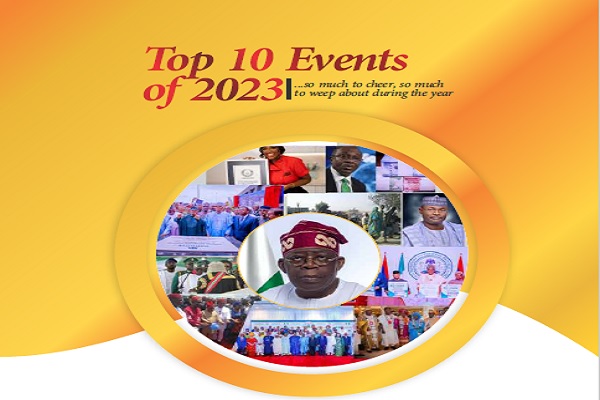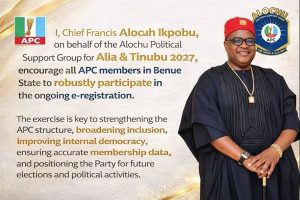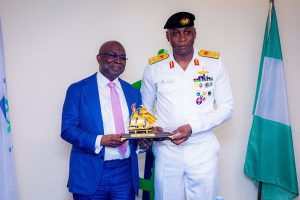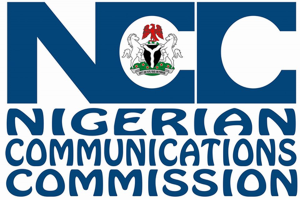Introduction
2023 in Retrospect
2023. What a year. An election year in Nigeria. No dull moments. Action-packed, from the beginning to the end. There was so much to cheer; and so much to weep about during the year.
Nigerians were ushered into 2023 on the wings of crisis occasioned by the Naira Redesign/Swap policy of the Federal Government. The policy which was midwifed by the Central Bank of Nigeria (CBN) in December 2022 involved the introduction of new 200, 500, and 1,000 denominations of the Naira. The old and new versions were to circulate side by side until the old version would be withdrawn from circulation as legal tender on January 31, 2023. The CBN said one of the objectives of the policy was to encourage cashless monetary transactions through the various digital channels.

But the implementation of the policy turned into something of a nightmare for Nigerians. The local currency became so scarce it caused untold hardship everywhere. Banks could not access it from the CBN for their customers who besieged their halls and premises. Some scenes turned riotous as customers attempted to scale the fence in the bid to gain entry to the banking hall. Some customers fainted after endless waiting. Others had stroke.
Across the country, the few Point of Sale (POS) dealers who were able to ‘buy’ cash from the banks ‘sold’ the naira to withdrawing customers for upwards of 10% commission. In the real sense, Nigerians were buying Naira with Naira. Elsewhere in some rural communities, in the absence of cash, traders resorted to trade-by-barter, the Stone Age practice of directly exchanging goods for goods and services.
Simultaneously, an acute scarcity of fuel co-mingled with the scarcity of the Naira, virtually grounding socio-economic and political activities in the country. Pockets of street protests broke out in some cities as a result.
With the Presidential, legislative and governorship elections scheduled for February 25 and March 11, the Naira-fuel crisis was turned into a political issue. Bola Ahmed Tinubu, Presidential candidate of the ruling All Progressives Congress (APC) all but directly accused his party-controlled Federal Government of creating the crisis to sabortage his election. Ironically and, as should be expected in politics, the presidential candidates of the leading rival opposition parties were less critical of the Naira Redesign/Swap policy and its fallouts.
It took a Supreme Court order, in a suit filed by a consortium of state governors, compelling the CBN to rescind its decision to withdraw the old notes from circulation as legal tender for the crisis to fizzle out. Not a few analysts insist the crisis had a significant impact on the outcome of the Presidential election.
Meanwhile, as the elections loomed and the incumbent administration’s exit date became imminent, the outgoing President, Muhammadu Buhari, went on a binge of project inaugurations across the country – some government-owned, some government-private, and some wholly private. In the first half of the year, Buhari commissioned such projects as the Dangote Refinery, Deep Seaport, the Lagos Light Blue Rail line, and the Imota Rice Mill, all in Lagos state. He also commissioned the Second Niger Bridge at Onitsha, the Kolmani Integrated Development Project to explore and refine crude oil in Northern Nigeria; and Eyemark Digital Application. In Kogi State, the President commissioned the Agassa -Upogoro-Benin Road, the new Palace of Ohinoyi of Ebiraland, and a world-class Reference Hospital.
President Buhari also inaugurated the Yobe Cargo Airport named after him, the new State Police Command headquarters, Police Ultra-modern Market, and Maternal and Child Healthcare Complex.
Also commissioned were the Loko-Oweto Bridge across River Benue to link Benue to Nasarawa State, and the Ikom Bridge in Cross River State. The road project is the completed section of the over 200 kilometres of Kano-Kaduna Dual Carriage Expressway and new Federal Secretariats at Awka, Anambra state; and Gusau, Zamfara.

Apparently, the timing of the commissioning of the projects, some of them not operational at the time, was targeted partly at beefing up support for candidates of his party and partly to highlight the legacies of his eight-year rule.
The election of President Tinubu in the general elections of February 25, apart from being a new chapter in Nigeria’s political history, generated two significant fallouts that Nigerians had to deal with for the rest of the year and beyond. The first was the summary removal of the sensitive fuel subsidy by the new President on his inauration day. The cost spiral it generated is still reverberating throughout the economy. The second was the legal challenge to his victory which put the Nigerian judiciary, especially the Supreme Court, and the electoral system on the front burner of public discourse for many months.
The case was finally decided by the Supreme Court in favour of the President on October 26 – but not without the judiciary’s reputation taking some bashing and bruising in the court of public opinion.
Since then, save for the persisting economic hardship, the country is gradually settling to normal life.
At our end, the Top10 Magazine was able to navigate its way through the viscicitudes of the outgoing year. In addition to the uninterupted regular outings of the Magazine, the management capped the year with a top-of-the-drawer ceremony in Abuja for its 2023 twin events of Top10 Man of the Year and the Top10 Excellence Awards.
This edition of the Magazine was basically conceived to chronicle the major events of national significance in Nigeria in the outgoing year as outlined above, under the headline ‘The Top10 events of 2023.’ Of course, we didn’t forget to blow our own trumpet a little by injecting a generous dose of materials from our major event of the year which took place on November 19 in Abuja. That event witnessed the cowning of Mr. Muhammad Nami, former Executive Chairman of the Federal Inland Revenue Service (FIRS) as the Top10 Magazine Man of the Year 2023 and over twenty other distinguished Nigerians as recepients of the 2023 Top10 Magazine Excellence Awards. If you missed the event live in Abuja, you now have the opportunity of making up through its indepth reportage in this edition.
We are aware this is Yuletide, a season when people prime themselves to step away from the year’s hard work, relax and have fun. No time for reading hard stuff. In line with the mood of the season, we have presented the content of this edition in the format to make for light reading.
Please, turn the pages.
THE 2023 NIGERIAN ELECTIONS
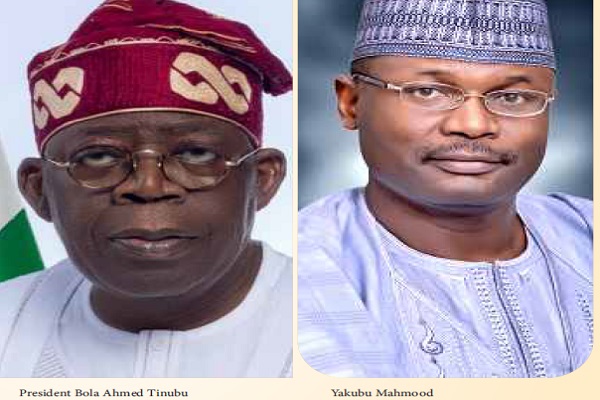
The year 2023 has been rightly described as Nigeria’s election year. The entire year was defined by the general elections, as their fallouts and related matters reverberated across the country and engaged the citizens for most part of the year.
The general elections produced a new President, 28 new or reelected state Governors, a new National Assembly (Senate and House of Representatives) as well as House of Assembly members in all the 36 states of the Federation. The elections were held, in large part, on February 25, and March 11, 2023. The president and vice president were elected on February 25, with incumbent President Muhammadu Buhari ineligible to run, being term-limited. There were also elections on the same day for the Senate and the House of Representatives. On March 11, 28 gubernatorial elections were held alongside elections to state houses of assembly in all 36 states. Three additional gubernatorial elections were held later in the year in Bayelsa, Kogi and Imo states, alongside rerun elections in some states.
The president-elect, Bola Ahmed Tinubu, was sworn in on May 29 as the 16th president of Nigeria, at Eagle Square, Abuja, alongside Vice-President-elect, Kashim Shettima, while 28 state Governors, 18 of them newly-elected, were sworn in in their respective states.
Tinubu replaced President Muhammadu Buhari who had served the maximum constitutionally permissable two terms of fours years each.
The newly elected Governors who took their oath of office on May 29, were Alex Otti of Abia State; Umo Eno of Akwa Ibom State; Hyacinth Alia of Benue State; Bassey Otu of Cross River State; Sheriff Oborevwori of Delta State; Francis Nwifuru of Ebonyi State; Peter Mbah of Enugu State; Umar Namadi of Jigawa and Uba Sani of Kaduna State.
Others are Abba Kabir Yusuf, Kano; Dikko Umar Radda, Katsina; Nasiru Idris, Kebbi; Mohammed Umar Bago, Niger State; Caleb Mutfwang, Plateau State; Siminialayi Fubara, Rivers; Ahmed Aliyu, Sokoto; Kefas Agbu, Taraba; and Dauda Lawal, Zamfara.
Re-elected Governors who also took fresh oaths of office for their second terms are Ahmadu Umaru Fintiri of Adamawa State; Bala Mohammed of Bauchi State; Babagana Zulum of Borno State; Muhammad Inuwa Yahaya of Gombe; Abdulrahman Abdulrazaq of Kwara State; Babajide Sanwo-Olu of Lagos State; Abdullahi Sule of Nasarawa State; Seyi Makinde of Oyo State and Dapo Abiodun of Ogun State.
Weeks or months after their inauguration, the President and the Governors appointed and inaugurated their ministers and commissioners, respectively, to mark the full take off of their administrations.
In spite of the formation of new governments at Federal and state levels, the ripples of the elections have continued to linger through electoral petitions. The 2023 elections are reported to have generated the highest number of petitions in Nigeria’s electoral history. As at October, the Independent National Electoral Commission (INEC) confirmed that 1,196 petitions were filed in the elections at all levels nationwide, representing a 94% litigation rate. The most sensational and controversial was the Presidential Election Petitions which generated worldwide interest, national threw up many issues, including the credibility of the judiciary and petitioners going to US courts in search of evidence, before they were dismissed.
While the record number of petitions arising from the elections question the credibility of the elections, INEC insists that most of them are frivolous. It argued that, with 712 of the petitions dismissed and 179 withdrawn, representing 74.4% litigation failure rate, there is no merit in the allegations that the elections were not credible.
As at the time of writing this report, deep into December, many other petitions were still pending in the appeal and Supreme Courts.
COMMISSIONING OF DANGOTE REFINERY
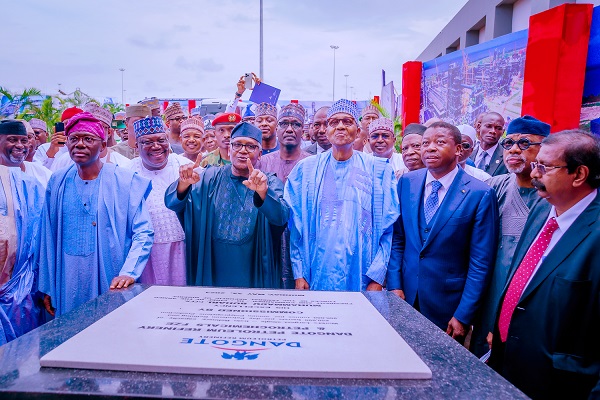
Outside politics, the most significant single event in 2023 with the potential to impact every citizen was the commissioning of the Dangote refinery located at the Lekki Free Trade Zone in Lagos in May. The ceremony was performed by the then outgoing President, Muhammadu Buhari, with several other African Presidents or their representatives in attendance.
The inauguration of the refinery brought high expectations in the Nigerian energy sector amid plans by the Nigerian government to remove petrol subsidy in the second half of the year. The government pinned its hopes of ending fuel imports largely on the completion of the Dangote refinery.
In 2021, the federal government had given the state oil firm, NNPC Limited, approval to buy a 20 per cent stake valued at $2.76 billion in Dangote Refinery, indicating a significant shift in government attitude.
Built by Africa’s richest man, Aliko Dangote, the massive complex is one of Nigeria’s single largest investments. It has a 435-megawatt power station, deep seaport and fertilizer unit.
The refinery has the capacity to meet 100 per cent of the Nigerian requirement of all refined products with surplus for export. It is designed to process Nigerian crude with the ability to also process other crudes.
The refinery would produce Euro-V quality gasoline and diesel, as well as jet fuel and polypropylene. The refinery is also expected to create a market for the $1 billion per annum Nigerian crude, in addition to foreign exchange earnings of $9.9bn.
In a report titled “Refineries watch Q4 2022” Hawilti, a Pan-African investment research firm, had said that the prospect of the new private refinery becoming operational could help redefine the nation’s local refining capacity.
“Both the opening of the Dangote refinery and the rehabilitation of state-owned refineries have the potential to make Nigeria Africa’s biggest refining hub by 2025.
Subsidy payments steadily rose from N351bn in 2005 to N4.39 trillion in 2022, while N3. 6trn was earmarked to fund fuel subsidy for the first six months in 2023.
“With all state-run refineries undergoing rehabilitation, Nigeria imports all its petroleum products and heavily subsidizes gasoline. It needs the Dangote Refinery to decrease imports, generate currency savings, fight inflation, and ultimately improve its macroeconomic outlook,” it said.
The International Monetary Fund (IMF) projected that the Dangote Refinery would help Nigeria’s economic recovery drive when it starts production.
“With crude oil for local refining not subject to the Organisation of Petroleum Exporting Countries (OPEC) quota, the refinery also has the potential to catalyse more domestic crude oil production and boost gross domestic product (GDP),” IMF said.
Subsidy payments steadily rose from N351bn in 2005 to N4.39 trillion in 2022, while N3. 6trn was earmarked to fund fuel subsidy for the first six months in 2023. The government had pinned its hopes of ending fuel subsidy and imports largely on the completion of the Dangote refinery.
In anticipation of the arrival of the refinery’s first batch of crude supplies in June, subsidized were officially withdrawn by the new Government of President Tinubu. But the supplies came about six months later in December, meaning that the high expectations that heralded the commissioning of the project will be realized in 2024.
THE MOHBAD DEATH SAGA

The biggest story on the entertainment scene in Nigeria in 2023 turned out, ironically, to be a story of a highbrow suspected murder, tears and sorrow.
The mysterious sudden death in a hospital of the budding young music star, Ilerioluwa Oladimeji Aloba, better known as Mohbad, sent shock waves across the global entertainment industry and among the youths. The incident revealed a lot about the dark side of the music industry, giving the public a glimpse into what looks like a huge criminal enterprise.
Observers say the outrage that greeted the death of Mohbad was not unexpected because the artiste had cried out loud, using his musical recordings to announce the threat to his life by his label boss and associates. The two major suspects in the tragic case, Naira Marley who was out of the country, and his associate, Sammy Larry, were declared wanted. They were later arrested, detained and released on bail
After much online outrage, the government set up an investigative enquiry to look into this affair. Government officials visited the relatives of the deceased. His corpse was exhumed and an autopsy conducted to know the true cause of death.
Prior to his death, Mohbad had filed a complaint against his bullies but it was not taken seriously by relevant authorities. His death raised so many issues about his relationship with family members and colleagues in the music industry. It raised questions about the response of relevant entertainment institutions, government, and the police to his distress call. “Various distress calls and alarms by citizens who face clear and present dangers from terrorists and other criminal gangs are often ignored until disaster occurs,” one commentator observed.
Nigerians, nay, the global entertainment industry, are waiting with baited breath for the outcome of the forensic investigation to ascertain the real cause of Mohbad’s death.
BREAKING OF GUINNESS WORLD COOKING RECORD BY HILDA BACI

It all started as a personal ambition by a 27-year-old Nigerian chef to enter the Guinness Book of Records. But Hilda Baci ended up putting Nigerians’ patriotism on display, creating a frenzy among the Nigerian ruling elite and the masses alike, as well as elevating the image of her country in the commity of nations.
Hilda Bassey, popularly known as Hilda Baci, made a historic feat when she broke the Guinness World Records for the longest cooking time by an individual.
Baci started her four-day cooking marathon challenge on May 11 at the Amore Gardens, Lekki, Lagos and kept cooking to extend the record till the 96th hour. As of 11:22 am on final, Baci had cooked for 91 hours and 21 minutes to surpass the previous record set by an Indian chef, Lata Tondon in 2019. The previous title-holder cooked for 87 hours, 45 minutes, and 00 secs.
Baci described the acquisition of the Guinness Record as one of her biggest aspirations. “The journey to the cook-a-thon started five years ago. It is one of my biggest aspirations and I am glad that I took the bold step to embark on this adventure. I have taken time to prepare for this psychologically and I am proud to finally take on this challenge.
“The cook-a-thon is also an opportunity to tell some of the positive stories that come from Africa through the meals that we make.
“This attempt is also proof of the strength young people can exhibit with the right platform and support. I look forward to receiving support from people across the world to achieve this feat,” she said.
Her quest for history generated so much buzz among Nigerians who rallied support for her both on social media and at the venue of the cook-a-thon.
In the course of the contest, many dignitaries including the President-Elect, Bola Tinubu; former Vice-President, Atiku Abubakar; former presidential candidate, Peter Obi; Governors Babajide Sanwo-Olu (Lagos) and Dapo Abiodun (Ogun) showed support and lauded her resilience and grit.
Sanwo-Olu visited the chef at the Amore Gardens in the Lekki area of the state and cheered her up. The lead pastor of Harvesters International Christian Centre Lagos, Bolaji Idowu; and Actor Charles Okocha, amongst others, also visited the chef.
When she eventually clinched the Guinness Record, congratulatory messages poured in for her the high abd mighty for placing Nigeria on global spotlight. The then President Muhammadu Buhari commended the young chef for finding her way into the Guinness Book of Records and placing Nigeria on global spotlight. In a statement by his spokesman, Femi Adesina, the President lauded the young culinary expert for turning her talent and passion into a career, and for resilience, perseverance, and consistency in cooking.
“The President notes the antecedents of the restaurateur who dazzled at the Jollof Face-off Competition, 2021, preparing mouth-watering dishes that won the choice prize, and settled an age-long rivalry with Ghana on which African country should own the trademark for cooking better jollof- rice,” the statement partly read.
The President said Hilda Baci’s drive and ambition had brought more interest and insight into the uniqueness of Nigerian food, as another cultural icon, with huge tourism benefits, hoping more young people will follow in her footsteps.”
Similarly, Senate President, Ahmad Lawan said Baci’s feat was a reminder to the entire world that Nigerians are talented and capable of excelling in any endeavour. “I celebrate Hilda Baci for breaking the Guinness World record in ‘longest cooking time.’
“You have made us proud by again showing to the entire world that we have all it takes to excel in any task we set our hands on,” Lawan said in a statement by his spokesman, Ola Awoniyi.
INAUGURATION OF THE SECOND NIGER BRIDGE
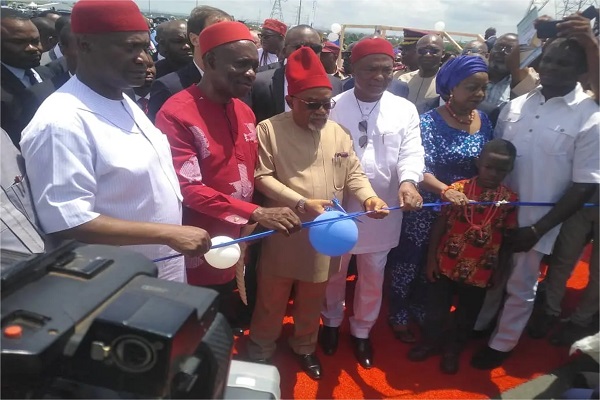
The inauguration of the Second Niger Bridge at Onitsha, Anambra state, by the then President Muhammadu Buhari in May was a big milestone event in 2023.
It was designed to ease the perennial traffic gridlock at the existing Niger Bridge at Onitsha, the only road link between the South East and South West. The significance of the event lies in the fact that the gigantic Federal Government project that, for many years and under different administrations, had seemingly turned into an elephant project, was eventually completed and commissioned.
The Second Niger Bridge was conceptualised in 2005. It was not until nine years later, in 2014, that an attempt was made to begin the project through Public Private Partnership (PPP) but the effort was not successful. The construction began in 2016 with the Presidential Infrastructure Development Fund (PIDF).
PIDF was established in February 2018 with the aim of eliminating the risks of project funding. Critical infrastructure assets assigned to it to be developed include the Second Niger Bridge, Lagos – Ibadan Expressway and Abuja – Kano Road. PIDF works hand in hand with the Nigeria Sovereign Investment Authority (NSIA), an investment institution of the Federation set up to manage funds in excess of budgeted hydrocarbon revenues. It operates three mandate funds: The Stabilization Fund, the Future Generations Fund, and the Nigeria Infrastructure Fund.
Speaking at the commissioning of the bridge, Mr. Aminu Umar-Sadiq, MD/CEO, NSIA, said “The PIDF projects are pivotal for socio-economic advancement and will significantly enhance access to market for people and communities. As fund and project managers to PIDF, it is our great privilege to have been entrusted with the responsibility of managing the resources necessary to deliver these critical high impact projects like the Second Niger Bridge and Abuja – Kano Road, among others.”
The Second Niger Bridge was named “Muhammadu Buhari Bridge”.after the former President. The Special Assistant to the President on Digital/New Media, Tolu Ogunlesi, tweeted that the decision to rename the bridge was taken by the five Governors of the eastern region. “Following consultations, the Governors of the South-East have agreed that the Second Niger Bridge shall be named the Muhammadu Buhari Second Niger Bridge,”
COMMISSIONING OF THE LEKKI DEEP SEAPORT
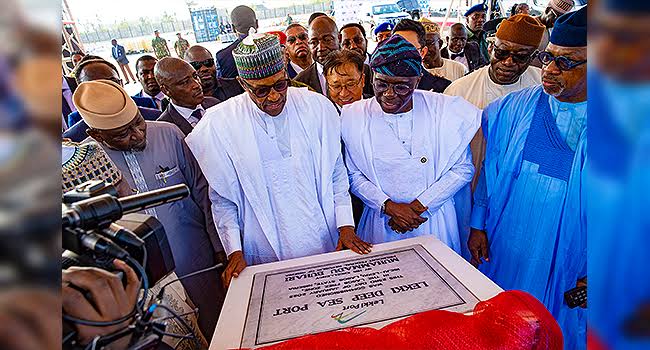
The commissioning of the $1.5 billion Lekki Deep Seaport by President Mohammadu Buhari in the twilight of his administration escaped the attention of many Nigerians. This was, perhaps, because it was buried in the din of political activities in the country at the time; perhaps because it was an exclusive affair of the maritime and international trade business community; and also, perhaps, because it was lost in the midst of many projects commissioned by the outgoing President.
Yet the event heralded one of the biggest projects commenced, executed, completed and commissioned by President Buhari.The Lekki Deep Sea Port is the single largest private investment in infrastructure in Nigeria being developed on non-recourse project finance basis with majority of financing being raised internationally.
The project which encompasses an investment in excess of $1.5 billion is a joint venture between the Federal Government through the Nigerian Ports Authority (NPA), Lagos State Government, the Tolarams Group (the owner of the Lagos Free Zone), and China Harbour Engineering Company.
The development of the Port was conceptualized to meet significant gap in projected demand and capacity for port services. Market studies indicate that the demand for containers is expected to grow at a rate of 12.9 per cent up to 2025. However, given the expansion constraints on the existing infrastructure, the capacity in Lagos is incapable of meeting the growing demand. The capacity shortfall for container terminal facilities in Lagos is projected to be 0.8 million TEUs in 2016 going up to 5.5 million TEUs in 2025. The strategic location, flexible and optimized layout and modern facilities provide Lekki Port a distinct competitive edge over any other port facility in the West African region.
According to the owners of the port, Lekki Port LFTZ Enterprose Ltd, in addition to bridging the capacity deficit, Lekki Deep Sea Port will have significant positive impact estimated at USD 361 billion over the term of concession. It is expected to contribute more than USD 200 billion to the government purse and create close to 170,000 new jobs. Furthermore, Lekki Port will spur the ecomic development around the Lekki sub-region and the wider Lagos State through rapid industrialization.
Other economic impact expected from the port include Direct and induced business revenue impact of US$ 158 billion, qualitative impact on manufacturing, trade and commercial Services Sector .
The port has three terminals, which are the container terminal, the liquid terminal and the dry bulk terminal. The container terminal has an initial draft of 14 metres, with the potential for further dredging to 16.5 metres. The terminal is able to handle 2.5 million twenty-foot standard containers per year.
The deep-sea port of Lekki is the first port in Nigeria with ship-to-shore cranes. It has three of these container gantry cranes; they belong to the “Super-post-Panamax” group – this means that they can reach and unload the rearmost row of containers even if the container ship is wider than the Panama Canal (49 m or 160 ft maximum boat beam).
The STS cranes have a fixed rail at the quayside that can lift 65 tons in twin-lift mode, 50 tons in single-lift mode or 85 tons under a hook.
The port’s computerised system will allow container identification and clearance from the office, and human interaction will be minimal in the physical operations
When the phase 2 is completed, the deep sea port will have three liquid berths. The liquid cargo terminal will handle vessels up to 45,000 DWT (dead weight tonnage) and can expand to reach a capacity of 160,000 DWT.
Liquids (like petrol or diesel) will be handled at a tank farm near the port. The docking area is equipped with loading arms. It is also connected by pipelines along the breakwater.
The bulk terminal with available quay length of 300m can accommodate a Panamax class vessel (75,000 DWT).
The Lagos State Governor, Mr. Babajide Sanwo-Olu, was joined by Governors Biodun Oyebanji (Ekiti) and Dapo Abiodun (Ogun) and former Governor of Ekiti State, Dr. Kayode Fayemi, Service chiefs, All Progressives Congress (APC) chieftains, among others, to receive the President.
Sanwo-Olu described the project as the biggest infrastructure in the whole of West Africa with potential to generate thousands of jobs.
THE SUPREME COURT PRESIDENTIAL ELECTION PETITION APPEAL JUDGMENT

Being conservative by nature, the Nigerian judiciary hardly grabs news headlines. But the 2023 general elections dragged it to the front pages for most part of the year, mostly for negative reasons. Many of its controversial judgments on electoral litigations, before and after the elections, drew public reactions that questioned its integrity.
The highpoint of it all was the Supreme Court judgment on the separate Presidential election petitions appeals filed by the closest rivals, Atiku Abubakar of the Peoples Democratic Party (PDP) and Peter Obi of Labour Party (LP) against the victory of President Bola Ahmed Tinubu of the All Progressives Congress (APC). For about two months, from early September, the nation waited with bated breath for the Supreme Court to finally decide the fate of the new President and that of his rivals who were challenging his victory.
The d-day came October 26 when the apex court affirmed the earlier judgment of the Presidential Election Petitions Court (PEPC) which had dismissed the petitions.
Atiku Abubakar and Peter Obi of the Labour Party, had alleged that the electoral commission failed to electronically transmit results from polling stations to an online portal. Abubakar and Obi who came in second and third, respectively, in the February 25 election, also argued that Tinubu had won less than 25% of the vote in the federal capital, Abuja, short of the legal threshold to become president.
Abubakar’s lawyers tried to submit evidence that Tinubu had forged academic credentials from an American university, but the Supreme Court rejected this, stating that it was not reflected in the original petition within the time frame provided by the Nigerian Constitution.
“Facts and documents which were not pleaded in the petition have no place in deciding the dispute between the parties,” Justice Inyang Okoro said.
The verdicts by the two courts drew outrage across the country, specially from the camps and supporters of the petitioners and civil society. They accused the courts of awarding the judgments to the highest bidder, claiming that the weight of the allegations, evidence and legal antecedents should have tilted the scale of justice in favour of the petitioners. They alleged that the courts were in cohorts with the Independent National Electoral Commission (INEC) and the ruling party, APC, to pervert justice and destroy the country’s electoral system and democracy.
The judgment by seven Supreme Court judges, which was final, followed a pattern seen in previous presidential elections that have been challenged in court. None of the attempts to overturn results through the courts has been successful.
“This judgment by the Supreme Court has evidently shaken the confidence of Nigerians in the judiciary, especially the Supreme Court as the last hope of the common man,” the PDP said.
But Tinubu hailed the judgement, saying the court had done justice to all issues put up for consideration in the petitions on the merits of the law, without fear or favour. “There is no doubt, with the profound judgment of today, that our electoral jurisprudence and constitutional democracy are further consolidated and embedded more indelibly in our national identity because of the diligence and undaunted professionalism of the Honourable Justices who presided over the matter,” he said.
He called for support from his opponents. “We are all members of one household, and this moment demands that we continue to work and build our country together,” Tinubu said in a statement.
THE NAIRA REDESIGN SAGA
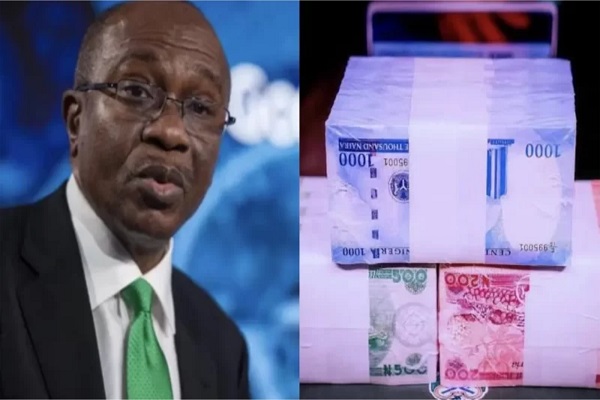
2023 ushered Nigerians into a regime of unmitigated suffering occasioned by the combined effects of a government policy of Naira Redesign and inexplicable hike in price of petrol.
The Naira Redesign policy which was introduced by the Central Bank of Nigeria (CBN) in December 2022 involved the introduction of new 200, 500, and 1,000 denominations of the Naira. The old and new versions were to circulate side by side until the old version would be withdrawn from circulation as legal tender on January 31, 2023. The CBN said one of the objectives of the policy was to encourage cashless monetary transactions through the various digital channels.
As the deadline for the withdrawal of the old notes drew nearer, the new notes became unavailable, contrary to expectations, putting commercial and daily life activities across Nigeria under pressure. The scarcity of new Naira notes worsened amidst equally worsening petrol supply crises, despite the extension of the deadline for acceptance of the old Naira notes as legal tender to February 10.
Most Nigerians could not access either the old notes or the new ones, throwing commercial and daily life into confusion and agonies.
The commercial banks stopped dispensing the old notes while they claim the new notes were not sufficient to meet demands either at the Automated Teller Machines (ATMs) or over the counters in banking halls.
In a bid to enhance the circulation of the new naira notes and in preparation for the February 10 deadline for the old notes, the CBN, directed banks to stop dispensing old currency notes.
However, the development, coupled with the continued shortage of the new naira notes made it more difficult for many Nigerians to engage in any form of commercial transactions including regular daily living.
Points of Sale (PoS) operators who had limited cash took advantage of the situation to make brisk business by charging high premiums on cash supply where N100, N500 and N1,000 were charged customers for withdrawal of N1,000, N5,000 and N10,000, respectively.
The Director-General of the Lagos Chamber of Commerce and Industry (LCCI), Dr. Chinyere Almona, said: “Businesses are suffering the consequences of the Central Bank of Nigeria (CBN) currency management policy lapses. Regarding the deadline extension for phasing out old notes, LCCI does not see any value in this if the scarcity of the new Naira notes persists.
“While we support the drive toward a cashless economy, redesigning the Naira and phasing out old currency notes could have been better planned and implemented with no hardship for businesses and individuals…
“We regret to note that expectations have been dashed, business deals impeded, and loss of time and value experienced by many. CBN needs to enlighten the public on grey areas about the scarcity of the new Naira notes in addition to strengthening its policy implementation capacity. This is the minimum expectation in the face of a currency crisis in which we find ourselves.
“The new Naira redesign has triggered varied reactions and feedback that suggest that related issues like the phasing of old currency notes, withdrawal limit, and the scarcity of new notes may have started to impact businesses and social livelihood beyond intentions. While banks have endeavoured to meet the currency demands of their customers through Automatic Teller Machines, and electronic transfers, the scarcity of the Naira has rendered their efforts ineffective.”
As the scarcity of old and new naira notes worsened, peasants in some rural communities returned to trade by barter, the direct exchange of goods for goods or services, considered the oldest form of commerce. Many traders did not want transfers because of network problem.
In some states, like Enugu and Oyo, the situation degenerated into street protests. Residents in Enugu metropolis mounted non-violent protests in different parts of the state capital city, raising objections against exorbitant prices of petroleum products and lack of physical cash to conduct business.
A liter of Premium Motor Spirit, sold for N450 against the official price of N187 despite its non-availability in most filling stations. The situation was compounded by lack of access to cash, while money transfers and POS services experienced high hiccups.
Queues built up at all the ATMs, transporters in the city jerked up fares as few commercial and private vehicles plied the roads. Irked by the compounded hardship, residents took to protests in New Haven, Old Park, Zik Avenue, Agbani Road and other parts of the state capital where tricyclists, bus drivers and even private vehicle owners blocked roads and chanted anti-President Muhammadu Buhari songs. They asked all operating filling stations to close businesses, saying that Nigeria had slid into a failed state.
A similar scene played out in Ibadan, Oyo state, and other cities.
It took a Supreme Court order obtained by a group of states to compel the CBN and the Federal Government not to enforce the deadline for the withdrawal of old notes as legal tender before the situation eventually normalized.
THE REMOVAL OF FUEL SUBSIDY
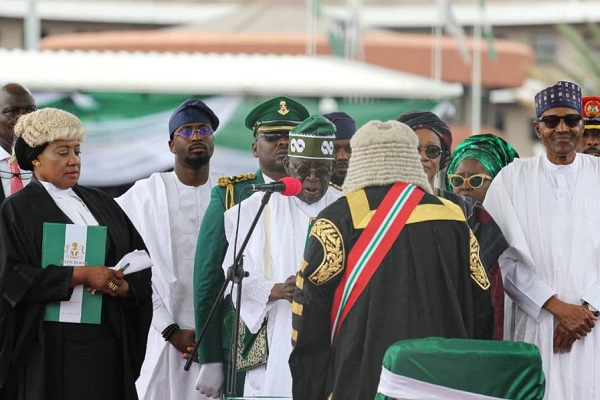
If the general elections were the most significant events in Nigeria’s political sector in 2023, the removal of subsidy on petrol was the equivalent in the economic sector.
Bola Ahmed Tinubu who emerged from the elections as the country’s president declared in his inaugural speech on May 29: “The fuel subsidy is gone.. “The subsidy can no longer justify its ever-increasing costs in the wake of drying resources. We shall instead rechannel the funds into better investment in public infrastructure, education, health care and jobs that will materially improve the lives of millions.”
Since then, nothing has remained the same for the economy and the citizens. The president’s pronouncement prompted a spike in the pump price of petrol from about N187 per litre to about N700 as at December, driving up the overall cost of living and doing business in the country.
Within two months of removal of the fuel subsidy, the entire economy virtually fell apart. Many independent petroleum products marketers could not restock. With motorists, road transporters and small-scale businesses needing about five times more money to fuel their vehicles and power generating sets, they were compelled to park their vehicles or close shop. Transporters who mustered enough money to put their vehicles on the road commensurately raised their fares beyond the reach of commuters and traders. Many car owners parked their cars to join millions of Nigerians who commute on their feet and on public transport. In big cities like Lagos and Abuja, a number of junior workers slept at any available space near their work places on work days, returning to their homes only during weekends, to be able to survive on their salaries.
Similarly, as a result of high transport fares, traders, including raw material suppliers, priced their wares beyond the reach of end users, including businesses – from small to large-scale manufacturers.
Organized labour threatened a nationwide strike if the government failed to reverse itself as former president Goodluck Jonathan did in 2012, when he tried to end subsidies. But after negotiations with the Tinubu administration, the unions reneged on their threat.
But President Tinubu insisted there was no going back on the subsidy removal. “This is one decision we must bear to save our country from going under and take our resources away from the stranglehold of a few unpatriotic elements,” President Tinubu reiterated in his Democracy Day address on June 12.
The Tinubu administration is confident that ending subsidy payments will free up resources for massive infrastructure investments in transportation, energy and other sectors. He also maintains that subsidy removal will aid climate action. Without the subsidy, Nigeria could conserve more than 15 million tonnes of Carbon Dioxide (CO2) each year.
In early August, Vice President Kashim Shettima said that without the subsidy, Nigeria could conserve more than 15 million tonnes of CO2 each year, helping the nation to attain its nationally determined contributions to the Paris Agreement.
According to him, the National Council on Climate Change’s initial analysis shows a potential 30 per cent decrease in everyday fuel usage, equal to 20 million litres or 42,800 tonnes of CO2 emissions.
That may, well, be so, but nearly six months down the line, the excruciating pangs of the subsidy removal on citizens and businesses, in terms of high cost of living and doing business, is still biting hard.
THE ACCIDENTAL MILITARY MASSACRE AT TUDUN BIRI, KADUNA STATE
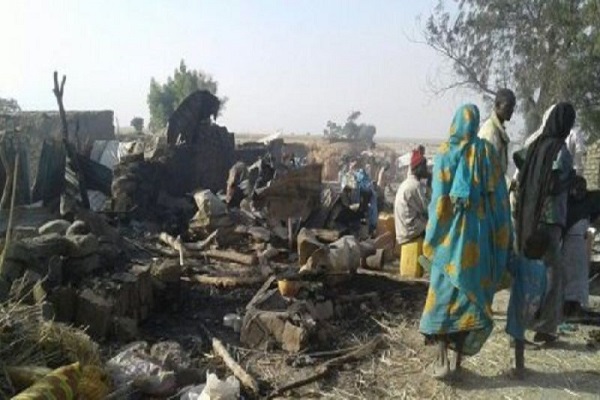
2023 came to a close in Nigeria on a tragic note. On Sunday night, December 3, a military drone strike killed many civilians gathered for a religious celebration at Tudun Biri village in Igabi Local Government Area of Kaduna State. The National Emergency Management Agency said in a statement on Tuesday that “85 dead bodies have so far been buried while search is still ongoing.” But Amnesty International, Nigeria Office, put the figure at 120.
“Many of them were children [and] more dead bodies are being discovered,” Isa Sanusi, the group’s director in Nigeria, told the Associated Press.
Most accounts say the attack took place as Muslims gathered to observe the holiday celebrating the birthday of the Prophet Muhammad. Kaduna Governor Uba Sani said civilians were “mistakenly killed and many others were wounded” by a drone “targeting terrorists and bandits.”
The head of the Nigerian army division in charge of operations in Kaduna was quoted by the state government as saying during a security meeting on Monday that the drone operation in the north over the weekend was a routine one.
“The Nigerian army was on a routine mission against terrorists but inadvertently [its actions] affected members of the community,” a statement issued by the Kaduna State Ministry of Internal Security quoted Major-General Valentine Okoro, head of the army division, as saying.
“Search-and-rescue efforts are still ongoing, as dozens of wounded victims have been evacuated” to hospital for treatment, Kaduna state Internal Security Commissioner, Samuel Aruwan, said.
The incident attracted both national and international attention. Though the event took place in the night on the penultimate Sunday, by morning the following day the story was in most media around the world.

